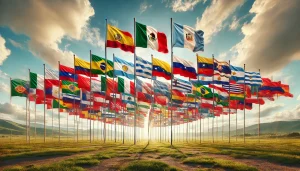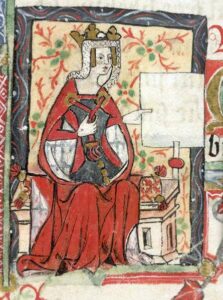Looking back hundreds and hundreds of years from now, we begin to look at how a country began its dominance by simply being courageous. Many rulers from different countries tried to sail and find new trading posts and ways of bringing in money but not many succeeded. Portugal on the other hand found ways of making money that would change not only their lives but many other countries that followed suit after them. How did they become successful and what did they discover before Columbus, you may ask?

The age of European exploration started with Prince Henry the Navigator, who sent an expedition to Africa to explore the coast of the continent in 1441, fifty years before Columbus set out his first voyage. Prince Henry was in high hopes in bringing riches back to Portugal. The purpose the Portuguese had in mind in its explorations over the next fifty years was: to expand European geographic knowledge, to find the source of prized African gold, and to locate a possible sea route to valuable Asian spices. Upon exploring, they came across different trading posts, and obtained their first amounts of gold dust from traders along the west coast of Africa. Portugal began to set up trading posts along the way, as well in Cape Blanco, Sierra Leone, and Elmina. These trading posts allowed them to trade Portuguese-made goods and items for African slaves; and they attempted to capture slaves on their own, but the attempt largely failed. During the 1480s, the Portuguese came into contact with the kingdom of the Kongo, situated south of the Congo river in what is today northern Angola. The Kongo became powerful through war and capturing and enslaving the people they defeated. The Portuguese believed that by having these slaves it would make it easier for them and it would ultimately make them more money. They made new territories that no one had ever seen or discovered before.
In 1444, a cargo of 235 enslaved Africans had been brought to Lagos in Portugal. Not long after this, the Portuguese soon began using these slaves on sugar plantations in Madeira, a small island off the west coast of Africa. The story of the Atlantic slave trade really has its beginnings here. Soon after this, they began to build the first slave fort, which was known as Elmina Castle, the headquarters of the Portuguese slave traders, which was located in present day Elmina, Ghana. Before they knew it, they began to dominate the slave trade for a short period, and they began not only making money with the slaves’ labor on the sugar plantation islands, but also by trading them for money as well. Eventually, the Portuguese sailed slaves across the Atlantic Ocean to numerous ports in the New World, where they sold these slaves for goods such as sugar, rum, and molasses. Slaves awaiting the “middle passage” were kept in pens, where they waited for months for a ship that would sail them to their new lives in the New World. The life of these slaves was tough.1
Portugal found out that West Africa had lots of gold, but also discovered the idea of slaves, something they had no intention of discovering or searching for upon the trip. The institution of slavery was already a reality in Africa even before the Portuguese sailed down the coast of Africa. But in the hands of the Portuguese, the conditions for these slaves became far worse when the Portuguese entered the slave business. Lisbon became a major European port for the slave trade; ships began to sail across the Atlantic Ocean to other ports that the Portuguese controlled, and began to carry more and more slaves on these ships. The Portuguese’s golden age was during the late 1400’s early 1500’s, thanks to their trade in slaves. The discovery of these slaves gave them a lot of power within a matter of years that helped them branch out from plantations and be able to trade and sell goods for enslaved Africans.2
Portugal discovered these slaves after many years and it made things easier for them with the growing of crops such as sugar and tobacco, along with the great amount of wealth that came from buying and selling slaves to other plantations. The courage that Prince Henry had for his country ultimately found them with great wealth and new sources for income as well. The journey allowed them to capture slaves and use them in the production of sugar and other plantations before Columbus sailed in 1492. The Portuguese were the first ones to discover the coast of Africa in efforts to becoming rich.3 The Portuguese dominated the early slave trade, but at its height relied solely on the new route and new forms of plantation by the exploration of the coast of Africa.4
- Salem Press Encyclopedia, January 2016, s.v. “Prince Henry the Navigator promotes Portuguese Exploration”, by Carl Rhohne and Marian T. Horvat. ↵
- Salem Press Encyclopedia, January 2016, s.v. ” Transatlantic slave trade begins”, by Thomas Tandy Lewis. ↵
- Salem Press Encyclopedia, January 2016, s.v. ” Transatlantic slave trade begins”, by Thomas Tandy Lewis. ↵
- Encyclopedia Virginia, January 2013, s.v. “Slaves and Middle Passage”, by Brendan Wolfe. ↵



29 comments
Christopher King
This article does a great job explaining the beginnings of the slave trade and why it became such as large enterprise in Europe and the New World. Not many discuss the origins of the slave trade and how it came about by near accident. Many countries were able to profit from this due to the enterprise of slavery and the new ports with the goods that became new to the world. Unfortunately they exploited a less developed culture and would eventually take control of a culture they would never understand.
Tyler Sleeter
Very informative article. I knew that Portugal had created several holdings on the African continent, and I knew they had a slave holding center in Ghana, but I did not know that Portugal took the African slave trade to Europe and other areas. I think it is horrible that an economy could be built in the sale of humans, but it does not surprise me that Europeans saw a way to make money and exploited that opportunity. It is interesting to me that all this began simply because Prince Henry desired to enrich the economy of Portugal and improve their holdings in world trade during this age of exploration.
Troy Leonard
I like reading articles like this because I think that it is important that people know what happen to others back in the day. I was very shocked when I red that some individuals or salves were traded for sugar or rum. it shows how little people thought of others like they weren’t anything be just someone’s property. great information you put in the article!
Joel Gracia
This topic was interesting to me because I was only exposed heavily to the slavery of our own country. It was mentioned that it existed elsewhere, but this well-researched and specific article provided me with a more in depth understanding of at least one of the regions that I was unaware of. It is disturbing that so many countries’ successes were built upon the backs of slaves.
Cameron Mays
Coming into this article, I had remembered learning quite about this in high school, and I found the topic quite interesting because of how poorly the slaves were treated and what not and it really broadened my understanding of slavery as a whole, because of this, I may be slightly biased towards your article. However, I also didn’t find anything that stood out as being wrong at all so good job.
Marissa Gonzalez
Slaves played a large role in Portugal’s success. In today’s world, this is something that is dehumanizing and selfish. This is using other people for their own benefit in a negative way. The mentality back then was different than now. Portugal was able to create new territories because of the slaves. They knew that using them would increase their profit. Portugal in the 1400’s-1500’s was going through their “golden age” which was due to the slaves. It is crazy to understand how America was like this in the past. We learn from our mistakes and it is important we are understanding more of the dignity of human beings. We are all different in some ways, but at the end of the day we are all human.
Matthew Swaykus
I have to agree with you Marissa. While it is true that slavery has existed well before Columbus, having engrained itself with so many cultures throughout the world including Africa, Portugal turned the institution into an elaborate market. It’s truly a horrifying thought to see the greatness of one country being brought about be the abduction of entire groups of human beings with families and dreams of their own.
Sergio Cervantes
Well-researched article! It is fascinating to read how the Portuguese ascended into power well before any of the other European nations. In a sense, these European nations owed Portugal a great amount of debt for exploring Africa and exploiting the enslaved humans living there. It is saddening to read that conditions for the slaves only grew worse after Portugal began to enter into the business of slave trading. It often astonishes me how powerful the human spirit is to survive such an ordeal (life as a slave).
Samuel Sanchez
I did not know that Portugal was only successful because the slaves. They were able to strategically take over the slave trade. It is a horrible way to make profit but with limited resources they were able to make quite a bit of wealth. They only did what they had to do to make some profit and officially acquire the gold that they were after. They could have kept the slaves and still be successful but I guess selling them was a big profit. Informative article. Keep up the great work.
Cesar Zavala
It’s hard to think that people were used as object to move civilizations forward. Spreading the knowledge of how common slavery was in the past helps not commit the same mistakes now in present time. The thorough facts you put in your article shows that you really did your research in this topic. Great well-written article. Keep up the good work!
Cameron Adelman
Portugal’s innovative strategy to amass wealth despite their lack of domestic resources was something that always impressed me, even if it did unfortunately come at a terrible human cost. One of the things that always made me curious is why the African slave trade never really seemed to have a market in Europe, or if it did perhaps it was just inconsequential compared to the amount of slaves that were trafficked to the various plantations. In any event, I thought your article was very well written. Well done.